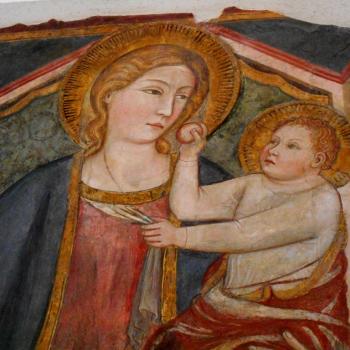American politics has embraced hyper-polarization as a way of dealing with uncomfortable truths about modern life. The country is changing. Myths we tell ourselves about what life was like back when our grandparents led happy lives in simplicity form too many of our judgments. We are not would-be space-adventurers believing in the promise of the future, rather, we are afraid of the present, bickering about the past. We sink into despair. We question if we can rebuild, reshape, reinvent. Meanwhile, too many voices only pull us back. To make America great “again” when we should be thinking that the greatness of our country is a project we have never fully realized. We are caught in the past at the same time we deny what the past is. The future can be a casualty of this thinking. Our mission, which is to improve, to learn, to heal, to listen, and to build, is tossed on the back burner while we roast our resentments.
If “Make America Great Again” has caused problems, one can only imagine what “Make the Church Great Again” will do. The corners of church leadership and the laity who ceaselessly attack Pope Francis have made an idol of the past and an idol of the papacy of previous Popes. We are Papists because we follow the Pope, not *a* pope, The Pope. We have played Popes against each other before and all it did was give Avignon some nice buildings and plunge the church into turmoil. I jest. But this is an important distinction. The Papacy of Saint John Paul II was indeed beloved by many and as the most important shepherd of the Catholic flock, his charisma and pastoral care brought many into the faith.
Yet, here we are in 2018 reliving the same communal pain we lived through in Boston over a decade ago. Here we are again adding our communal pain and sorrow to the profound individual pain and sorrow of the abused. Many of these abuses occurred during the Papacy of Saint John Paul II. As a matter of clerical principle on the subject of handling abuse in the church, that papacy is not a model for us now. We must do better. We must act differently. We must face the future.
So I must admit I did not find much helpful in Viganò’s recent letter. I was never a fan of Viganò’s stunts, especially those involving Kim Davis and the timing and framing of the letter seemed to be an opportunistic attempt to strike at Pope Francis, someone Viganò has rarely respected. An excellent summary and discussion of the event was published in America. There are reasons to doubt Viganò’s claims. Seeing the likes of Laura Ingraham use the letter as basis for asking for the Pope’s removal did not give me confidence. Viganò’s crusade seems to be much more against homosexuality in the church than abuse. He blames gay priests for the acts of predators and pedophiles, an emphasis which erases the experience of many women and girls who were also abused in the church.
But, in our mission to do better and be better, we must take all accusations seriously and work to make a church that is transparent and open in which the institution does not seek first to protect itself.
When Francis was asked by journalists about the letter, he said “it speaks for itself” and explained that he trusts journalists to come to their own conclusions. While this response has been derided by conservative Catholic media hungry to disrupt his papacy, it is a stunning rejection of the political rhetoric of our age where news cycles with fast denials and reversals have become typical, especially in the United States. Rather than disparage Viganò and deny the letter, which would only further the narrative that there is a “civil war” in Rome, he said nothing, except to put his trust in journalists to figure out the truth. Journalists have, for instance, already cast doubt on Viganò’s narrative that Pope Emeritus Benedict XVI had completely banned McCarrick from saying mass and working in seminaries, by finding many instances of McCarrick participating in all sorts of church events, quite openly.
In America, we cannot imagine our President saying to journalists “I trust you to find out the truth” and that fact is a great signal of the political and constitutional troubles of our times. Pope Francis’s directions–somewhat mischaracterized as a refusal to comment by outlets such as Fox News–are, in fact, an invitation: read the letter, do your research, and come to your own conclusion. In other words, Pope Francis is welcoming the work of journalists, the work that has done the most to bring the church to accountability and the story of survivors to the ears of the faithful.
There is much more we need to know. Those who would seek to exploit this scandal, the vast majority of which occurred during previous papacies, to unseat Francis are acting with prideful division. We need truth and accountability something the Pope, and we, know to come from the open work of journalists. We must listen before we can heal. Trust is not rebuilt so easily.












